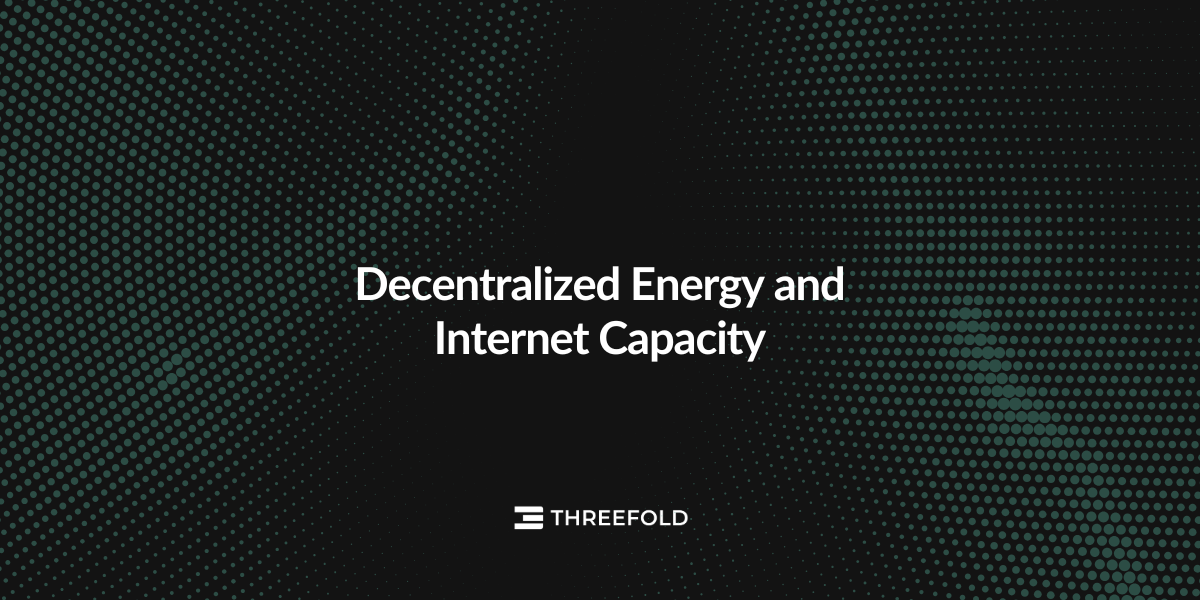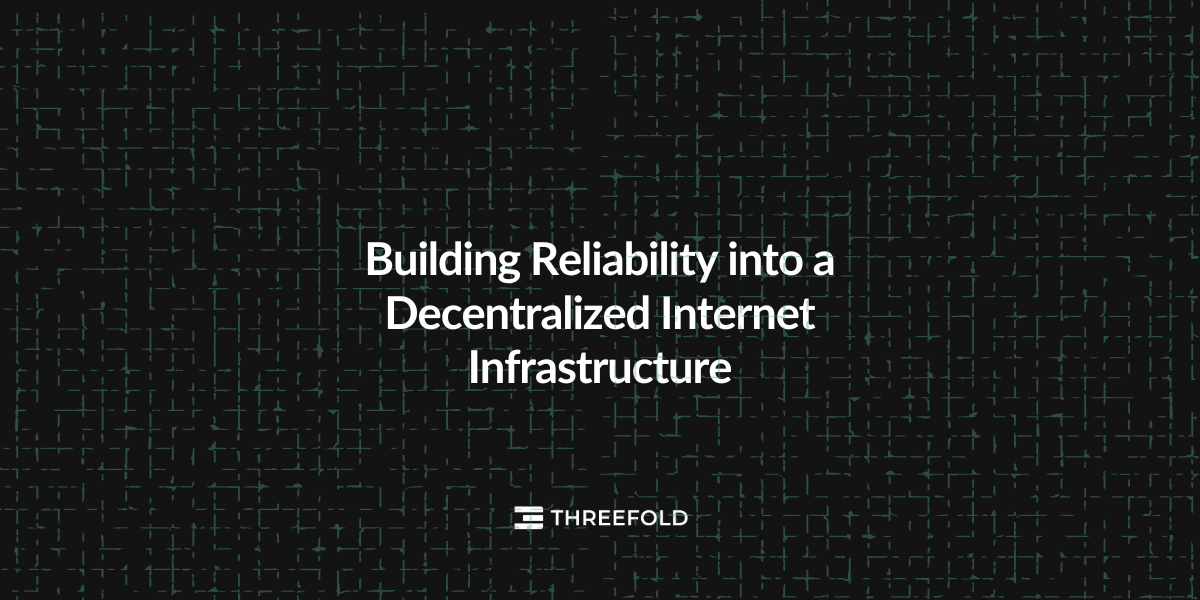This article was originally published by Emilie Ouwerx, a former member of the ThreeFold team.
Today, technological advancements are accelerating at unprecedented rates and the demand for cloud resources has boomed, with the global cloud services market estimated to reach $2.5tn by 2031. This is due to a range of factors, including accelerating technological adoption in emerging markets, the rapid digitization of business, the soaring volume of data generated by loT devices, the adoption of Al and machine learning technologies, and the increasing reliance on real-time data processing.
🔗The Dilemma of Centralized Cloud Infrastructure
From bustling cities to the remote corners of the globe, the need for reliable, scalable, and secure cloud infrastructure is universal. But as this demand surges, it is increasingly clear that traditional centralized cloud infrastructures (mostly hyperscale data centers located in North America, Europe, and Asia-Pacific) are no longer sufficient to meet the evolving needs of today’s digital landscape. Not only do data centers face an exponential increase in the amount of computing power needed globally (US data center demand alone is forecasted to surge 10% annually until 2030), but confronted with emerging technologies and workloads, they also face inherent latency issues, bandwidth constraints, scalability challenges, and security risks. These limitations hinder the delivery of seamless and efficient cloud services to users worldwide.
The energy and sustainability challenges of these emerging technologies are demonstrated through the example of ChatGPT-3. Its training alone consumed 1,287 MWh of energy and emitted over 550 tons of carbon dioxide equivalent. Such energy-intensive processes are not only a concern for the environment but also highlight the strain on traditional centralized cloud infrastructure. We need a more sustainable alternative to support the soaring demand for cloud services.
🔗Meeting Demand at the Edge
Edge computing emerges as a compelling solution to address the challenges facing centralized cloud infrastructure. It involves processing data closer to its source (where it is generated), typically at or near the “edge” of the network, where computing resources are deployed in proximity to the devices or sensors that generate the data. This proximity enables quicker data processing and minimizes latency, addressing the shortcomings of centralized data centers. As more devices and applications require processing and storage capabilities at the edge for improved performance, lower latency, and enhanced reliability, the demand for edge computing solutions continues to grow.
According to Alexandra Rotaru, senior research analyst at the International Data Corporation (IDC), edge computing is “one of the most resilient and attractive areas of investments, growing globally at a double-digit rate over the next five years”, underscoring its growing significance in meeting the evolving computational needs of modern enterprises and service providers. People are clearly looking for alternatives to the centralized data model with Gartner predicting that by 2025, 75% of enterprise-generated data will be processed and created outside of traditional centralized clouds and data centers.
🔗Hello ThreeFold
ThreeFold, a decentralized autonomous cloud infrastructure, does edge computing by definition. Our cloud is built from 3Nodes, hardware deployed by people locally, allowing data to be processed and stored closer to the source. Decentralized cloud infrastructure is a distributed network of computing resources that are not controlled by a single centralized authority. Instead, these resources are spread across a network of geographically dispersed nodes and managed collectively through decentralized protocols and technologies. As the largest and most advanced decentralized autonomous cloud network in the world, ThreeFold is a pivotal player in meeting growing global demand at the edge.

Let’s dive deeper into why decentralized cloud infrastructure and edge computing offer a compelling solution to the challenges posed by centralized cloud infrastructure:
-
Reduced Latency: By processing data closer to where it is generated, edge computing dramatically reduces latency, ensuring that applications and services respond swiftly to user inputs. Whether it’s streaming high-definition video, conducting real-time financial transactions, facilitating real-time interactions in VR and AR settings or controlling IoT devices, minimizing latency is essential for delivering a seamless user experience without delays.
-
Increased Energy Efficiency: Processing data closer to the source minimizes the energy expended in transmitting data over long distances. Read more about ThreeFold’s energy efficiency here.
-
Improved Bandwidth Efficiency: Edge computing optimizes bandwidth usage by minimizing the need to transmit data over long distances to centralized data centers. This conserves network resources, cuts costs and enables more efficient data transfer, particularly in regions with limited connectivity or bandwidth constraints.
-
Enhanced Scalability: As devices multiply, centralized data centers often face data overload. Edge computing resolves this by distributing processing tasks closer to the data source, which improves scalability and ensures efficient handling of increasing workloads.
-
Data Privacy and Security: Data is dispersed across a distributed network of nodes rather than being stored within a single centralized location. This distributed approach reduces the risk of data breaches, unauthorized access, and single points of failure, bolstering the integrity and confidentiality of sensitive information.
-
Support for Real-Time Applications and Emerging Workloads: Edge computing enables the seamless deployment of real-time applications and services, including immersive virtual environments (metaverse), AI-driven analytics, and IoT ecosystems.

As technology evolves, traditional centralized clouds reveal significant limitations. Decentralized, edge-centric approaches to cloud computing are essential to address the ever-growing global demand for cloud resources and to adapt to the evolving needs of businesses, consumers and communities worldwide. With ThreeFold at the forefront, the future of cloud computing is decentralized, distributed, and transformative.

 Bernadette Amanda Caster
Bernadette Amanda Caster





















